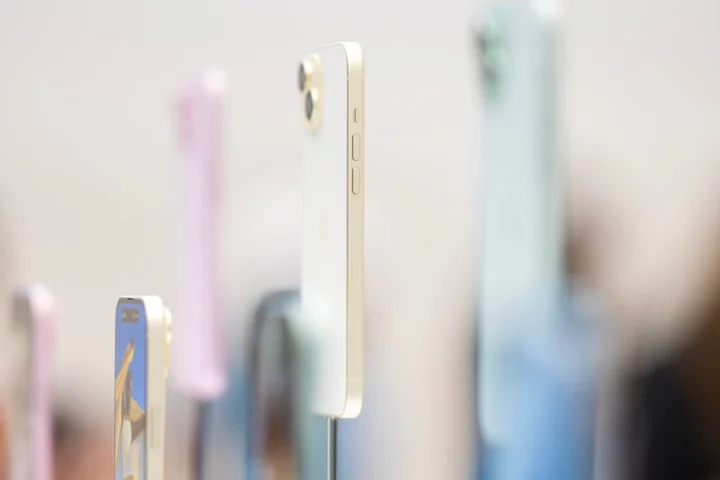
iPhone 15 Pro: How Apple made the smartphone into a camera like none before it
The iPhone is a lot of things. It's a social networking portal, it's a games console – sometimes it's even a phone. For Apple's Jon McCormack, Apple's vice president for camera software engineering, it's "primarily a camera that you can text from". It wasn't always this way. When Steve jobs introduced the iPhone in 2007, he famously described it is an iPod, a phone and an internet communications device; the first iPhone had a camera, new iPhones are cameras. The pictures that first iPhone turned out were more useful than beautiful. Today, however, the iPhone's pictures have grown up, and it is now the most popular camera in the world. Now the question is how sharp the pictures should be, and there has even been some criticism that the pictures it turns out are too sharp, if anything. The iPhone's camera is no longer just a useful addition but is used in professional contexts, and is often given as the main reason to upgrade to new models. The new iPhone 15s, in particular the premium Pro and Pro Max, continue Apple's mission to turn its smartphones into cameras like nothing in the history of photography. They have new image formats, the addition of extra focal lengths, and the iPhone 15 Pro Max even includes a 5x lens that makes use of a "tetraprism" lens that bounces light around inside the phone to add dramatically more zoom without making the phone any bigger. All of that additional hardware works in collaboration with improved software: users no longer have to click into portrait mode, for instance, because the camera automatically captures depth information when taking a picture of people, so that background blur can be added and edited even after the photo has been taken. Apple has also added a host of features that many people are unlikely ever to even look at, let alone use, but are important to professionals. They include the addition of Log encoding and the Academy Color Encoding System – both key to those who need them. Apple also says that the new iPhone has "the equivalent of seven pro lenses", despite really only having three; what they mean is that you can choose different crops, which is in part an attempt to appeal to those professional photographers who stubbornly say that they will only ever work with a 50mm lens, for instance. (Those new lens choices are not only a cropped version of the existing lenses, says McCormack, since the phone also has custom neural networks specifically designed to optimise images at that focal length.) Those complex new features are a reminder that the iPhone is many things to many users: some may simply want to remember important events, or snap pictures of their pets. Others might be truly professional photographers, needing to rely on their iPhone to capture valuable and fleeting events. Some people are, no doubt, both – and Apple is aware that the iPhone has to be both, too. "For us, what we feel is really important – especially since computational photography started to blur the line between hardware and software, and really enable anybody to take stunning shots with minimal effort – is making sure that that tool that we have in your pocket is adapting to your needs," says Maxime Veron, Apple's senior director for iPhone product marketing. "So if you're just trying to take a quick photo of your kids can get out of the way and just allow you to do that. And if you want to create a professionally created Hollywood style video, it can also give you the customisation and the power to do that." McCormack says that Apple builds the camera from "the core belief that everybody has got a story that is worth telling". For some people that story might be their child taking their first steps, captured in a video that will be shared with only a few people. Or it might be a photojournalist taking images that are going to be shared with millions. "Our belief is that your level of technical understanding shouldn't get in the way of you being able to tell that story," he says. High-end cameras have often required their users to think about a whole host of questions before they even get to actually pressing the button to take a picture: "the temperature of light, the amount of light, the direction of light, how fast is the subject moving? What are the skin tones?" notes McCormack. "Every second that you spend thinking about that, and playing with your settings and things like that, are seconds that you are drawn out of the moment," he says. "And what we want to create is this very deep connection between the photographer, the videographer and the moment." He points to the action button on this year's Pro models, which can be programmed to launch the camera with a push. "It's all about being able to say all of this crazy complexity of photography, or videography – Apple's taken that, and understood that, and hidden that from you," he says. "You as a photographer, you get to concentrate on the thing that you want to say, and finding that decisive moment, finding that beautiful framing, that says the thing that you want to say. "But the motivation for all of this and using all of this crazy, great computational photography, computational videography, is that we don't want to distract you from telling the story that you want to tell." That has meant building the iPhone's camera in a way that the features "unfold", he says. "Out of the box, we are going to give you an amazing thing that is going to cover most of your moments, with lots of dynamic range, lots of resolution, zero shutter lag, so you can capture the moment. "But of course, there are folks who are going to look at this and say, you know, I've got a very specific and very prescriptive vision," he says. He points to a variety of new tools that are built into the phone, such as the ProRAW format, which makes huge files and is not especially useful to most – but can be key to someone who really wants to ensure they are able to process every detail of a photograph after it is taken. Those are hidden within settings, there for the people who need them but not troubling those who don't. Veron also notes that many of those extra features are enabled by "an amazing ecosystem of third party partners" who make apps that allow people to get features they are looking for. It is a reminder of just how much is going on as soon as someone takes a picture with the iPhone. First, light travels through one of Apple's three lenses and hits a 48 megapixel sensor – but that's just the beginning of a long process of computational photography that analyses and optimises that image. The picture that is taken is not just the one image, for example: it is actually made up of multiple exposures, with more or less light, that can then be merged into a picture with the full dynamic range. "This year for the first time, we merge them in a larger resolution," says McCormack. It takes one image in 12 megapixels, to give a fast shutter speed and plenty of light, by combining pixels together; then it grabs a 24-megapixel frame, which collects the detail. "Then we register those together and use a custom machine learning model to go and transfer the detail from the 48 over into what has now become a 24." That creates something like the negative in old camera terms, which the iPhone’s processor can then get to work on, using parts of its chip focused on machine learning. "We use the neural engine to go decompose that photograph, bit by bit." It will notice if people have different skin tones, and develop those parts of the image accordingly; hair, eyes, a moving background and more are all taken to pieces and optimised on their own. (The intensity of that process has occasionally led to questions over whether the phone is working too hard to make its images look good.) Then there's yet more work for the camera system. The iPhone uses tonemapping to ensure that images pop on the bright screens of modern iPhones, but also that they still look bright on a compressed image that might be sent around the internet; one of the many changes that smartphones have brought to photography is that, for the first time, the photos are mostly looked at on the same device they were taken with, but that they can also be sent and seen just about anywhere. If the image is taken using night mode, then there's even more work, with new tools that ensure that colours are more accurate. And that isn't even mentioning portrait mode, which when it registers that there is a person (or a pet) in the frame will gather the relevant depth information to ensure that the background can be manipulated later. That whole process – those five paragraphs, and thousands of calculations by the phone – happen within the tiniest moment after pressing the button to take the photo. The phone may look as if it is serenely offering up an image to its users, but it has been busily working away in the background to ensure the picture is as accurate and vibrant as possible. All that work done by the camera and the rest of the device depends on a variety of choices made not only by the iPhone but by Apple, which accounts for the look of the modern iPhone picture – Veron says that its aim in making those decisions is to make "beautiful, true-to-life memories in just one click". McCormack is clearly keenly aware of the responsibility of that task; his vision decides what the world's memories look like. "This is your device that you carry with you all time the time, and we want to be really, really thoughtful of that," he says. That responsibility carries into the design of the camera within the phone: rumours had suggested that this year's model would include a "periscope" design for the long zoom, bouncing the light through the length of the iPhone, but McCormack says that Apple went for the five-way prism to ensure that it could "both retain the industrial design that we want, to just make iPhone feel so good in your hand, but also be able to get that extra focal length". "It is just of one of those crazy things – only Apple is going to do something like that. And I'm really glad that that's the way we think about product." Read More Tim Cook says Vision Pro release is on track: ‘I watched Ted Lasso Season 3 on it’ Apple Store goes offline as Apple opens pre-orders for iPhone 15 Apple to update iPhone 12 after fears over radiation iPhone 12 is not emitting dangerous radiation, Apple says, amid fears of Europe ban France’s iPhone 12 ban could spread across Europe, regulators say Everything Apple killed off at iPhone 15 event
1970-01-01 08:00
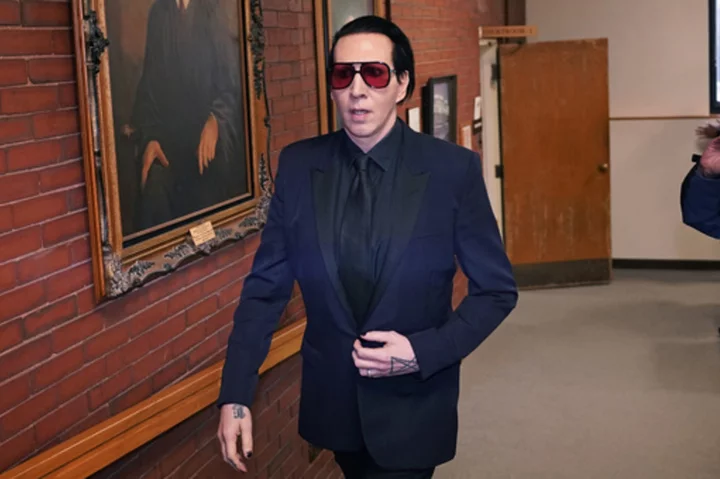
Marilyn Manson pleads no contest to blowing nose on videographer, gets fine, community service
Marilyn Manson has been sentenced to community service and a fine after pleading no contest to blowing his nose on a videographer at a 2019 concert in New Hampshire
1970-01-01 08:00
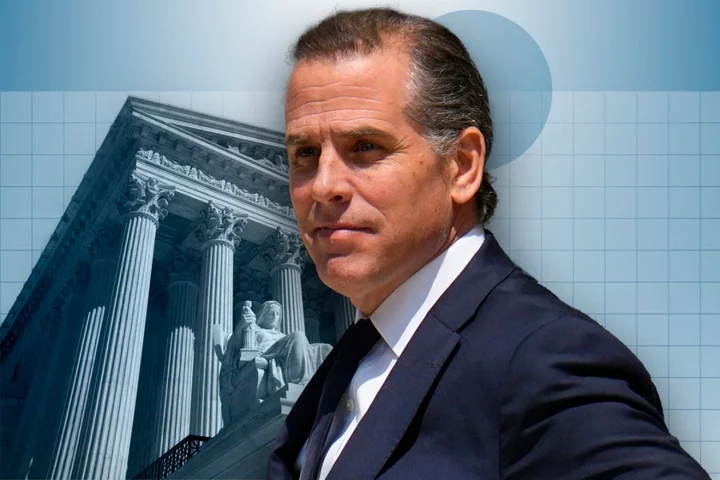
Is Hunter Biden’s gun case a test for the Second Amendment?
Following a five-year federal investigation, a grand jury has indicted President Joe Biden’s son Hunter Biden on three charges connected to a gun purchase in 2018, a time period during which the president’s son has admitted to using drugs. Federal law prohibits people who use drugs from buying firearms, but questions surrounding the constitutionality of that law could throw the case into jeopardy following a landmark US Supreme Court decision that opened a wave of litigation under the court’s expansive Second Amendment lens. That’s if the case survives the political maelstrom targeting the Biden family, with congressional Republicans eager to prosecute the president’s son and impeach his father in parallel probes separate from a US Department of Justice special counsel investigation facing GOP pressure. That partisan scrutiny comes as the leading candidate for the 2024 Republican nomination for president faces four sprawling criminal trials of his own, including charges for serious crimes allegedly committed while serving as 45th president. Republican officials and campaigns are eager to draw a false equivalence and dominate airtime with investigations surrounding the younger Biden instead. Ironically, a Supreme Court decision celebrated by Republicans last year may have set a precedent that could protect Hunter Biden from prosecution. The Gun Control Act of 1968 prohibits people who use drugs from possessing firearms, a ban that applies to people who have admitted to using illegal drugs within 12 months before buying a gun, according to the US Bureau of Alcohol, Tobacco and Firearms. Violating that provision could land an offender with a 15-year prison sentence. But the Supreme Court’s decision in New York State Rifle & Pistol Association v Bruen – decided by the court’s six conservative justices – argues that such restrictions be historically consistent with the Second Amendment. As Justice Clarence Thomas wrote, “the government must demonstrate that the regulation is consistent with the Nation’s historical tradition.” The decision created an absurdly high new burden to test the constitutionality of restrictions and other safety measures to combat the proliferation of high-powered firearms and keep them out of the hands of people who could be a danger to themselves or others in the American era marked by daily mass shootings and surging rates of gun violence, analysts and advocates have argued. President Biden has said the decision “contradicts both common sense and the Constitution.” Within a year after that decision, more than a dozen state and federal gun laws have been challenged, with 30 per cent of civil cases and nearly 4 per cent of criminal cases citing the Bruen decision in challenges that have invalidated gun control measures, according to research in Duke Law Journal. This year, federal judges in several cases have ruled that banning someone who uses drugs from owning a firearm is “inconsistent with the Nation’s historical tradition of firearm regulation.” “In short, our history and tradition may support some limits on an intoxicated person’s right to carry a weapon, but it does not justify disarming a sober citizen based exclusively on his past drug usage,” Ronald Reagan-appointed US District Judge Jerry Smith wrote for a federal appeal courts panel in August. “Nor do more generalized traditions of disarming dangerous persons support this restriction on nonviolent drug users.” Hunter Biden is charged with illegally owning a gun as a drug user, and with allegedly lying on a form when he bought the firearm. If convicted, he could face up to 25 years in prison, though it is highly unlikely he would face such a sentence. Jacob Charles, a professor at Pepperdine University’s Caruso School of Law and a constitutional law scholar focusing on the Second Amendment, said Mr Biden’s attorneys likely have a viable Second Amendment case. It might be more difficult to challenge federal law against lying on a firearms form, which is not directly tied to Second Amendment rights, “so it’s possible that an appeals court or the Supreme Court would agree with the defense on both of the questions, and say it’s unconstitutional, and since it’s unconstitutional, you also can’t be punished for lying about the other category,” Mr Charles told The Independent. Essentially: if one count is on unconstitutional grounds, there’s a chance the other counts wouldn’t stand up either. “It’s not always the case that the higher profile the defendant, the more likely you’re going to get Supreme Court review,” he said. “Sometimes it seems to happen lately. But there are other cases that are farther along in the process that are challenging this same law, that if the court really wanted to answer this question, it wouldn’t have to use the Hunter Biden vehicle to do it.” Mr Charles says the case has underscored the “disruptive effects of the Supreme Court’s decision in Bruen” and the chaotic new landscape for the nation’s myriad gun laws, which now have an apparent historical analogy regardless of the urgency for such laws in the first place. This year, the Supreme Court will hear oral arguments in a major Second Amendment test that further magnifies the chasm between the new historical test and current realities, when justices will hear a case involving a man who possessed firearms and allegedly repeatedly shot at people while subject to a domestic violence restraining order. It is also unclear what evidence prosecutors are reviewing to determine that Hunter Biden was using drugs at the time; those details are publicised in his memoir, in which he describes his struggle with abuse and his relapse in 2018, the year he bought the gun. Mr Biden’s attorney Abbe Lowell believes the case will be tossed out altogether. “The only change that has occurred between when they investigated [this alleged crime] and today is that the law changed,” he told ABC’s Good Morning America on 15 September. “But the law didn’t change in favour of the prosecution. The law changed against it.” ‘I’ve never heard of this charge. Never’ Mr Lowell and others have also questioned the timing of the case, parallel to growing threats of impeachment from far-right members of Congress against President Biden and adjacent investigations from House Republicans seeking criminal prosecutions against the president and his family. “The US Attorney’s Office has known about this for years,” Mr Lowell said. “What changed? Not the facts, not the law, but all the politics that have now come into play.” The younger Biden was prepared to plead guilty to charges stemming from the firearms purchase as well as separate tax-related misdemeanours earlier this year, though a plea agreement appeared to fall apart under scrutiny from a federal judge. Justice Department special counsel David Weiss, who as US Attorney for Delaware has been investigating Hunter Biden for roughly five years, said he would seek a grand jury indictment in the case by the end of September. Mr Weiss was appointed by Mr Trump and initially requested by congressional Republicans to lead a special counsel probe. Following the collapse of that plea deal, Mr Lowell stressed to CBS Face the Nation that Mr Weiss is “a Republican US attorney appointed by a Republican president and attorney general who had career prosecutors working this case for five years looking at every transaction” in which Hunter Biden was involved. “If anything changes from his conclusion,” he added, “the question should be asked, what infected the process that was not the facts in the law?” Outside of the constitutional scrutiny in Mr Biden’s case is the unusual stand-alone charge for lying on a form, which is typically charged in connection with a more serious underlying crime. The Brady Handgun Violence Prevention Act of 1993 – supported by then-Senator Joe Biden as the chair of the Senate Judiciary Committee – made a federal form for firearms purchases a key part of a package of anti-crime legislation. According to prosecutors, Hunter Biden lied on the form when he was asked whether he is an “an unlawful user of, or addicted to, marijuana or any depressant, stimulant, narcotic drug, or any other controlled substance.” But the chance of being prosecuted for lying on that form is exceedingly rare among the millions of background checks performed each year. Within the fiscal year that Mr Biden bought the gun and filled out that paperwork, federal prosecutors received 478 referrals for charges – and filed cases in roughly half of them. Mr Biden likely did receive so-called “special treatment” from federal prosecutors, as Republican officials have claimed. But it was in the opposite direction. His prosecution appears especially more severe than that facing a typical defendant. “Can anyone tell me how many people have been federally indicted for purchasing a gun while dealing with substance abuse issues?” asked Keisha Lance Bottoms, a former senior adviser to President Biden. “I don’t know the answer, but in my over 29 years as an attorney, I have never heard of it.” According to former Justice Department inspector general Michael Bromwich, these kinds of charges simply do not happen. “I’ve been involved in law enforcement both as a prosecutor and a defense lawyer for 40 years. I’ve never heard of this charge being brought. Never,” according to Mr Bromwich, who served as Justice Department inspector general from 1995 to 1999 and previously served as a federal prosecutor in New York. He is currently a senior counsel at Steptoe & Johnson LLP. “I think it’s extremely unusual to bring, if not unprecedented to bring, this set of charges,” he told The Independent. “These charges were brought as a result of the unrelenting political pressure brought by Republicans in Congress to bring a heavy hand down on Hunter Biden as a way of trying to get to Joe Biden, and I think the prosecutor, Mr Weiss … has succumbed to political pressure,” he said. A plea agreement like the one reached this summer “is much more in keeping with what an ordinary prosecutor would do,” according to Mr Bromwich. Should Mr Weiss seek a plea arrangement like the one prosecutors sought earlier this year, his office is “going to invite criticism from the very Republicans who will put the pressure on him right now who now feel great that there are these very serious charges against Hunter Biden,” he told The Independent. “Given all the forces at play, all the political pressure exerted from the Republican members of Congress, it’s very hard to predict where this is going to go, and how.” Read More Trump denies pushing for Biden impeachment inquiry in secret meetings with MAGA Republicans Hunter Biden indicted: What are the charges and what could happen next? Will House Republicans put up or shut up on Hunter Biden? Should domestic abusers have the right to be armed? The Supreme Court could upend protections for survivors Trump, January 6 and a conspiracy to overturn the 2020 election: The federal investigation, explained
1970-01-01 08:00

Italy mulls new migrant crackdown as talk turns to naval blockade to prevent launching of boats
The Italian Cabinet is meeting to adopt new measures to crack down on migration
1970-01-01 08:00
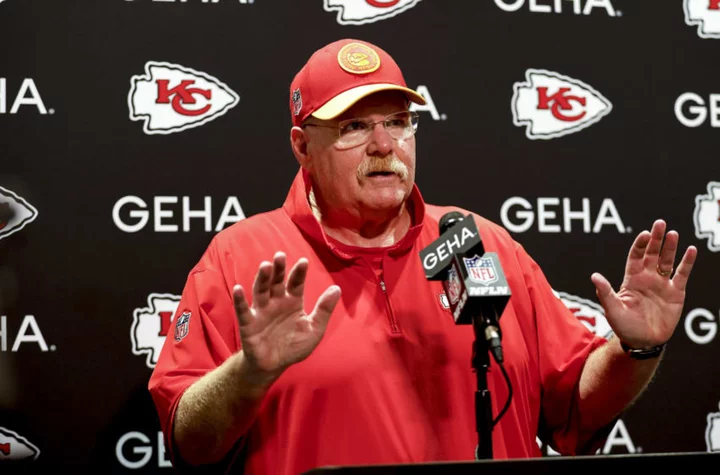
Everything Andy Reid said after Chiefs hold on by a thread against Jaguars
The Chiefs scraped by to a less-than-impressive win over the Jaguars in Week 2. Here were coach Andy Reid's thoughts on the game.
1970-01-01 08:00

What is the Triple Crown in Baseball?
Only a handful of MLB players have achieved the MLB Triple Crown award. What exactly is the award and what makes it so hard to obtain?
1970-01-01 08:00

3 possible starting lineups for Thunder next season
The Oklahoma City Thunder are transitioning out of their rebuilding phase, and have a roster full of talent and versatility for the 2023-24 NBA season. There are a lot of different ways they can line up to start games.
1970-01-01 08:00
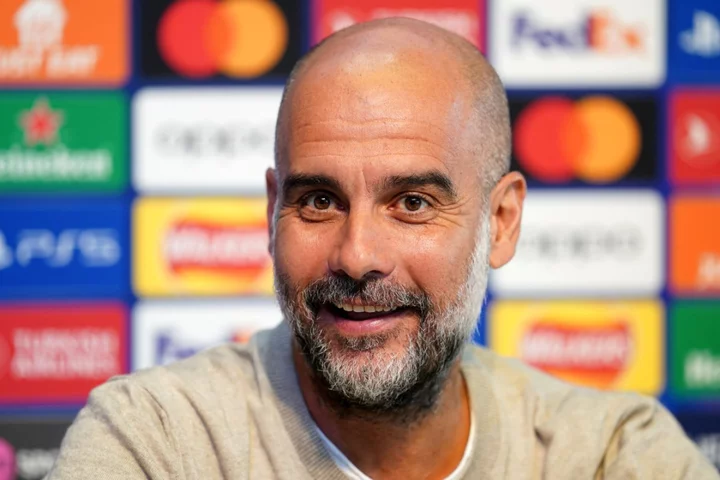
Pep Guardiola challenges Man City to win back-to-back Champions League titles
Pep Guardiola has challenged his Manchester City side to achieve something special and win back-to-back Champions League titles. The treble winners begin the defence of their European crown as they host Red Star Belgrade at the Etihad Stadium on Tuesday. City finally put years of near-misses behind them to win the competition for the first time last season but, while Guardiola is proud of their achievements, he feels their mission is not yet over. The City manager said at a press conference: “I’d like to say that for our club to win the Champions League is incredible – the first time in our history – but, in perspective, how many teams have won the Champions League once? “A lot have won two, three, four, five. In perspective, we did nothing special. It’s just one. “Let’s go. Let’s try to win tomorrow against a team so aggressive, so fast up front.” Guardiola is viewing the challenge as nothing different to past seasons, although he accepts the pressure of trying to defend the trophy will be easier than when trying to win it for the first time. “It’s most difficult to win the first one,” he said. “But every season we start the competition in the first game with the target to win the first game, then the group stage, then try to win the Champions League. Nothing changes from before. “The same for Red Star tomorrow. It depends on our performance and our level. “We’re incredibly happy to defend this crown but this competition doesn’t allow you mistakes. “But always we were so strong at home, nine points from nine. When that happens you can win just one game away and you qualify. Tomorrow is the first step.” City reached the European summit, and capped a glorious treble, when they beat Inter Milan 1-0 in the final in Istanbul in June. Yet the club have not sat back and dwelt on their success, adding the UEFA Super Cup and starting the new Premier League campaign with five successive wins. Guardiola admits he has not even watched back the final, which was won with a single goal from Rodri. He said: “People say we won it and it’s done. It’s not done. They’re happy, we’re happy. Every time we come here, people take pictures with the four trophies. “That makes us so happy, you cannot deny, but if I wanted to live for the memories I wouldn’t be here. I’d be at home or on a beach. “I didn’t watch the game, no. Not at all. The competition gives us a new challenge so let’s at least try – and I don’t have any doubt we will try.” Read More Charity boss speaks out over ‘traumatic’ encounter with royal aide Ukraine war’s heaviest fight rages in east - follow live Conor Murray: Ireland squad in ‘unbelievable nick’ ahead of South Africa clash Eddie Jones says Australia ‘under the pump’ heading into crunch Wales showdown Scotland step up preparations ahead of second World Cup match with Tonga
1970-01-01 08:00
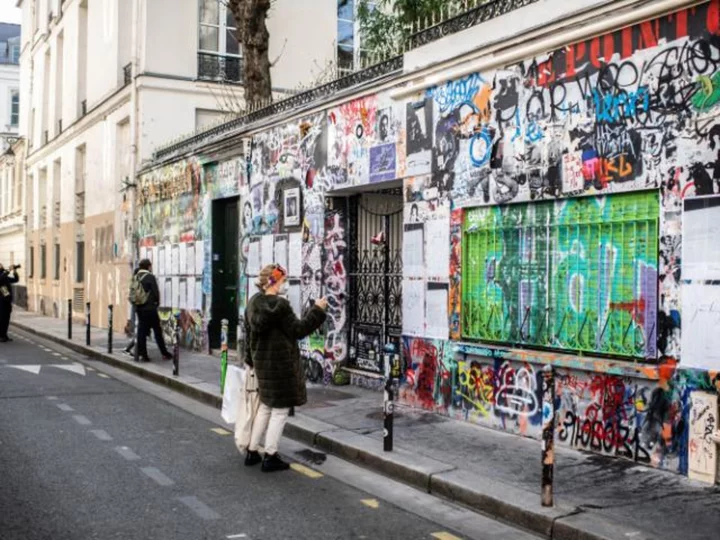
Serge Gainsbourg's former home is opening to visitors, but tickets are sold out until December
Visitors to Paris will soon be able to explore the former home of French singer and actor Serge Gainsbourg, which has been preserved as a time capsule since his death three decades ago.
1970-01-01 08:00
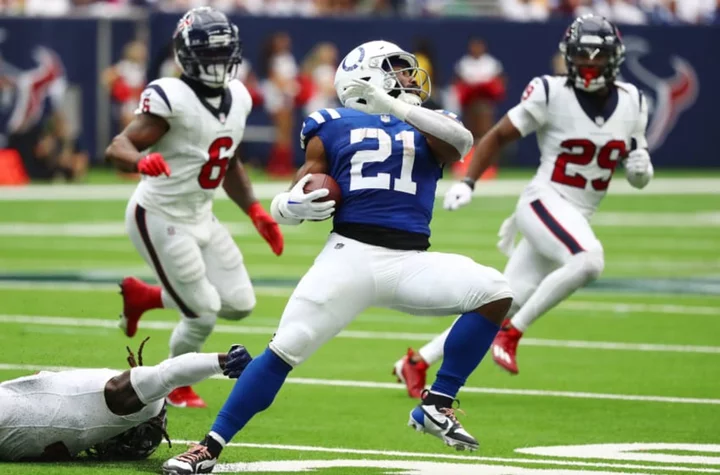
5 breakout fantasy football stars to pick up for Week 3
A trio of running backs and a pair of wide receivers highlight the top fantasy football pickups for Week 3.
1970-01-01 08:00

Hundreds of flying taxis to be made in Ohio, home of the Wright brothers and astronaut legends
The same Ohio river valley where the Wright brothers pioneered human flight will soon manufacture cutting-edge electric vertical takeoff and landing aircraft
1970-01-01 08:00
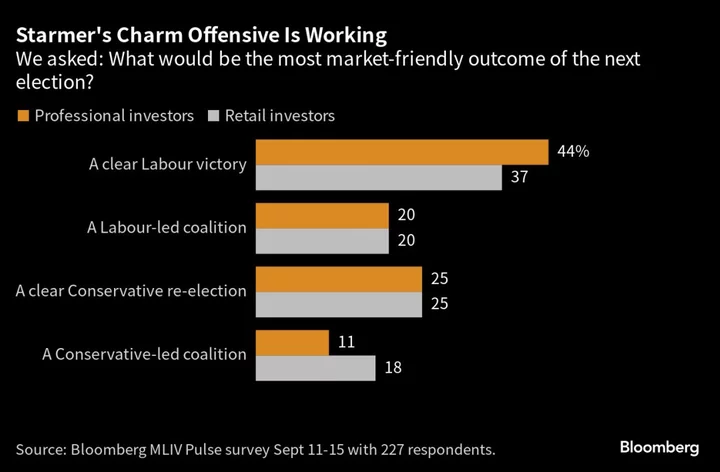
Truss Says Sunak Has Room to Cut Taxes Ahead of UK Election
Former UK leader Liz Truss urged her successor Rishi Sunak to cut taxes ahead of the next election,
1970-01-01 08:00
